1. The End of Time
On March 23, 1933, Goethe University in Frankfort bestowed its highest honor upon Theodor Adorno, granting him a full professorship.

After years trying to make a name for himself in the fields of philosophy and cultural studies, the young scholar’s hard work had finally paid off.
That very same day:

A government act was signed bestowing unlimited emergency powers to the nation’s Chancellor. Adolf Hitler would use these new powers to implement sweeping reforms of German life and culture.
Just two weeks later, all Jewish citizens of Germany were banned from state, university, and civil service positions.
Then they came for the books. Published works by Marx, Freud, Kafka, Einstein, Proust, and countless other heretics were banned and burned in enormous bonfires. Soon enough, Jews were no longer recognized as German citizens.
Jazz music was officially banned in the fall of that year. Then all forms of modern and avant garde art were banned.
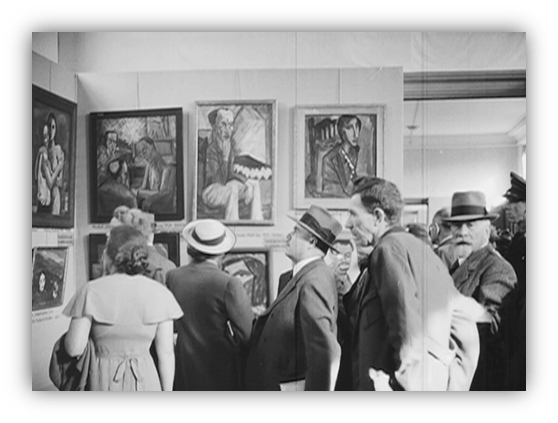
Cubism, Expressionism, Dadaism, Surrealism, abstract art. All of them were branded as “Entartete Kunst.” Degenerate art.
The Weimar Bauhaus was shut down, never to open again. Some artists destroyed their own works to rid themselves of evidence that could be used against them. Others fled. The breakdown of society had begun.
Theodor Adorno was a Jew who wrote works of Neo-Marxist philosophy, and he also composed modernist music. Naturally, he and the other Frankfort scholars were targets of this deranged regime.
Using his scholarly connections, Adorno soon moved to London, working and studying at Oxford. Then in 1939, he moved to the United States to escape the war that the Nazis had unleashed upon Europe.
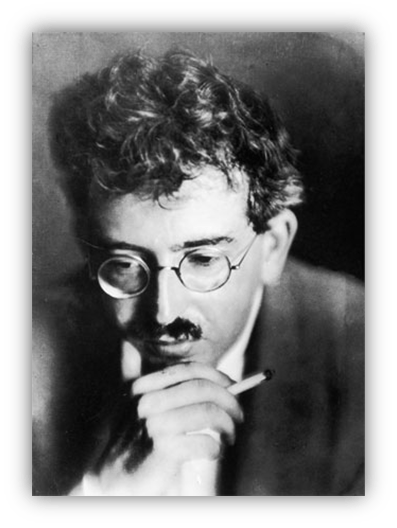
Some of his Frankfort School colleagues, such as the esteemed cultural critic Walter Benjamin, would not make it out alive.
He killed himself rather than be handed to the Nazis.
Meanwhile, Dada-Surrealist pioneer Max Ernst had been living in France when the war broke out. As a German citizen, he was interned by the French army. With the endorsement of some revered French artists, he was released. But in Germany he was arrested again, this time by the Gestapo. With the help of Peggy Guggenheim, whom he would later marry, he was able to escape Germany and flee to America.
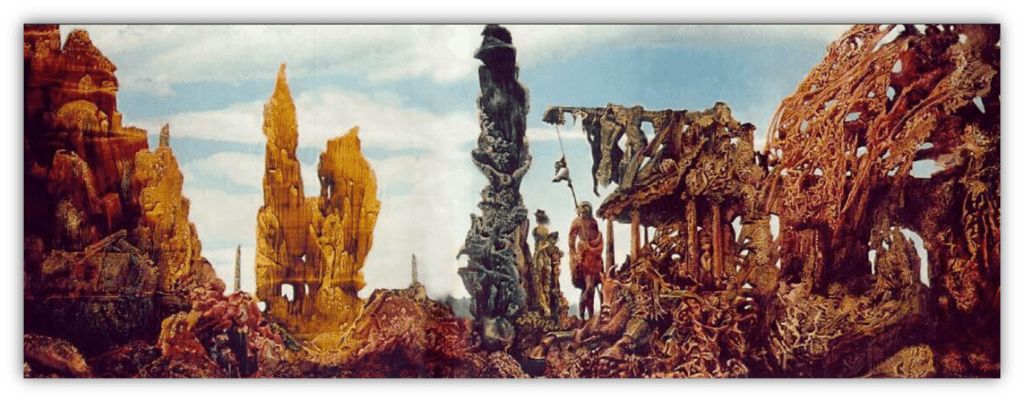
The French composer Olivier Messiaen was one of many soldiers taken as a prisoner of war. Yet during his captivity, he found that one of his guards was a big fan of his music. Messiaen was kept in a cell with fellow musicians, and was provided with paper and ink.
Eventually the guard gave them instruments to play. Messiaen took the opportunity to write a piece called “Quartet for the End of Time.”
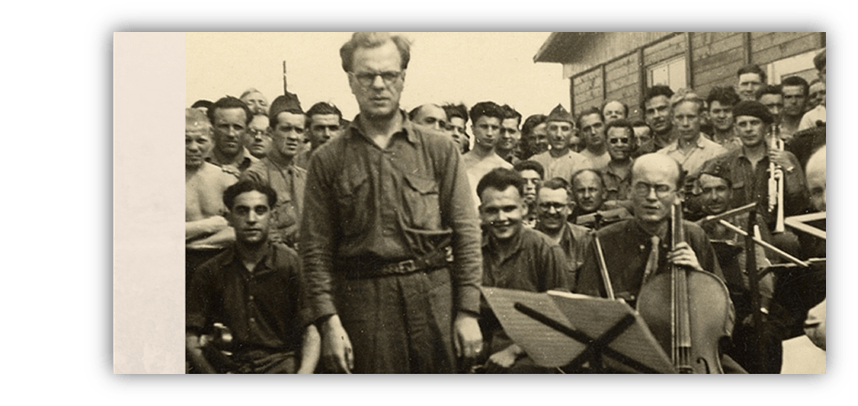
He debuted the piece with his inmates at the internment camp.
Messiaen was eventually released with the help of that same guard, who provided him with fake papers to present. And so he was able to escape to Paris to teach and compose music.
A lot of other artists, thinkers, and wealthy citizens from Europe fled the war, and lived the next five or so years in exile.
Far more people were not so fortunate. They would not make it alive from this man-made nightmare.
2. God Bless America, My Home Sweet Home
On February 21, 1938, the painter Markus Rothkowitz was granted US citizenship.

He had been living in New York City for years after immigrating from Russia, but had come to fear the possibility that the rise of Nazi power in Germany would lead to the deportation of Jews in other countries.
He changed his name to hide his heritage, and thus became Mark Rothko. He and other artists in New York City would speak out against Hitler and fascism, but not many people at the time were listening.
American leaders were notably reluctant to engage in the war in its early years. Film dailies featuring disturbing scenes from Europe could be viewed in American theaters since 1939, yet, an isolationist sentiment of “no interference” held strong.
That is, until an open act of war decisively forced the nation out of the sidelines.
Once Pearl Harbor was attacked by Japanese forces in late 1941, the powers that be would commit to put every resource available into the national war effort. Able-bodied men of every race would be sent overseas into combat.

Many of the women left stateside would be sent to take over production duties left by the men; factories across the country shifted largely from commercial products to materials necessary for the war: guns, ammunition, planes, tanks, ships, helmets, food, etc.
Everyone sacrificed in whatever way they could; everyone contributed to the greater good.
Through their collective action, and guided by a high-minded national vision, the formerly isolationist America was able to topple the threats of Nazi Germany and Imperial Japan.

From then on, American culture would become synonymous with the spread of ideals of freedom.
Right?
3. Darn That Dream
On August 22, 1934, retired Marine Corps Brigadier General Smedley D. Butler met with a man who represented a Wall Street banking firm. The man had been courting Butler for months for some vague purpose, but this was the first time he had made his cause plain.
He asked Butler to seize the power of national governance from President Franklin D. Roosevelt, and create a fascist regime in America.

This plot was being pushed by certain wealthy businessmen, including S.B. Colgate, Alfred P. Sloan, the DuPont family, among others.
Backed with soldiers armed by Remington, Butler was expected to lead a march on Washington, and force the president to serve as a figurehead for Butler, who was to become a de facto dictator.
Butler opted instead to provide testimony to the US House of Representatives Special Committee on Un-American Activities. Newspaper accounts of the testimony depicted the retired general as a loon, but subsequent investigation by the committee bore out the truth of his statements.
Even beyond this specific plot, there were many other powerful Americans who supported Hitler’s rise, including:

Media magnate William Randolph Hearst,

Aviator Charles Lindbergh,

and even the modernist writer Ezra Pound.
Others would continue to do business with the Nazis throughout the war, such as Henry Ford and Prescott Bush.
There were at least 22,000 Americans who gathered in Nazi regalia at Madison Square Garden in 1939 to publicly advocate for Hitler’s cause.
And let’s not forget the Americans murdering innocent men and women for the crime of being black.

Billie Holiday’s protest song against lynching was recorded right at the start of the war. And lynching would spike again shortly after the war, once Black veterans returned from abroad to their homes.
American freedom had real limits at this time, it seems. The reality of history is far messier than the story we often tell ourselves.
And yet, nothing quite brings a hero’s quest in relief like a deed of unsurpassed villainy.
4. Heroes and Villains
It was in the months after Germany had surrendered that American and Soviet soldiers began to discover the Nazi concentration camps, such as at Auschwitz, Buchenwald, Bergen-Belsen, Dachau, and Mauthausen.
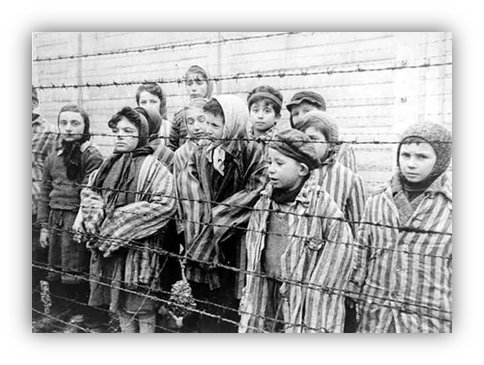
What the soldiers found there were horrors beyond imagining, far beyond the conventional brutalities of war.
Eventually it came to light that the number of people murdered simply for being Jewish was about six million, about two thirds of the entire Jewish population in Europe. Other victims of the Holocaust included Black citizens, Romani, homosexuals, people with disabilities, the elderly. Any humans deemed unfit by the Germans were shipped off and discarded like so much rubbish.
Nazi Germany was long considered to be a threat on the world stage, but this was something far worse than an aggressive opponent. This was inhuman cruelty on an industrial scale. This was monstrous; it was pure evil.
So much of America’s wartime portrait of itself, as a heroic champion for world freedom, was swagger and self-interested strategy.
And some of it was obviously bullshit.
But in the aftermath of the war, the myth actually proved more true than its engineers could have imagined.
Even beyond the great evil of the Holocaust, there really was something special about the myth that America was churning out during and after WWII.
No, it was not in any way an accurate depiction of America as it existed then. But the myth gave Americans something to believe in, something to work towards.
Something to guide our nation forward. Something that, over time, can look less and less like a fantasy, and more and more like a reality. There is real power in belief, because shared beliefs, when they are sincere and inspiring, can mobilize collective action for societal change and improvement.
The master propagandists had known all about the power of public beliefs and mass action, but their intention was to restrict power, to “protect the masses from themselves.” This new myth of America framed the nation as the bastion of freedom. That was not at all inevitable, particularly given the nation’s previous stance of isolationism.
The emergence of this myth during World War II gave our nation and its allies a real shot at positive collective action for a greater good.
There was indeed a great deal of injustice that existed in America in the 1940s, and plenty that continued on afterward.

But there was also unprecedented levels of sustained coordination and sacrifice from almost every citizen during this time.
It is a sad fact that such feats simply could not be expected of citizens today.
We’ve all benefited from the progress made by those earlier generations, but we now struggle to access the mechanisms of social change that our forebears employed so successfully: collective action through a unifying, positive mythic vision.
As our shared beliefs have waned, so have our super powers.
We have all benefited tremendously from the progress made by those earlier generations. And yet, for all our enlightenment, we now struggle to access the mechanisms of social change that our forebears employed so successfully: collective action through a unifying, positive mythic vision. As our shared beliefs have waned, so have our super powers.
The biggest lesson that America and European nations learned after the war is that freedom is not a given.

It is a precious commodity. And it is fragile.
And so it must be actively maintained within our culture and our systems of government. America’s freedom talk during the war may have started as national bluster, but it came to inform a deeply serious endeavor for global democracy going forward. More on that next time.
For now, let’s all stop and take a moment to contemplate this incredibly dark chapter of human history.
Let’s say a silent prayer for the many millions who suffered and died, for nothing.
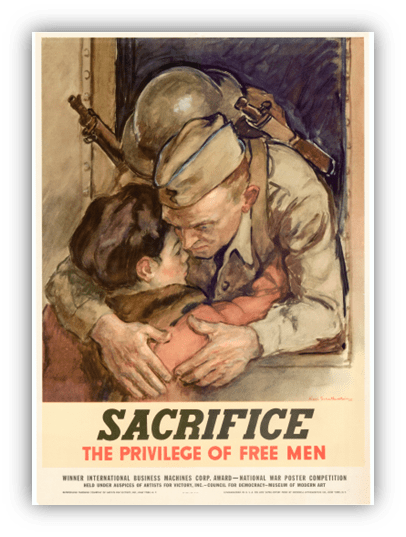
Let’s honor the sacrifices of those who fought to preserve our own rights and privileges.
Let’s try to prove ourselves as the heroes of our story according to how we choose to live and treat others, rather than how we are somehow destined to be.
Let’s all work to preserve our freedom and liberty, without losing our moral compass and our sense of collective responsibility.
Let us together be a beacon illuminating our way ahead, rather than simply add to more darkness.
The choice will be ours to make.
Let the author know that you liked their article with a “Green Thumb” Upvote!





Amen, Phylum. I know that it’s a part of your series, but you could have easily sidestepped it. I give you a ton of credit for this thoughtful, well-composed piece on a dark part of history that many would rather forget, but in doing so, we’re doomed to keep going down the road of hatefulness and the ignorance and cold indifference that allows for it.
Every mayor should read this aloud from the steps of every town hall across the country, though we probably wouldn’t look up from our phones. It should be required reading in every school and every business and every church in the country. It should be repeatedly broadcast nationwide. This is the lesson Americans need to learn.
And probably won’t until it’s almost too late, just like always.
Well done, Phylum.
Maybe a forced choice would do it:
Either read this piece…or listen to Harry Partch!
…or watch Stay Away, Joe.
Thanks for this, Phylum.
While this may be specific to the American experience I see plenty of parallels. The same sacrifice and co-ordination of efforts for the greater good that its difficult to see being replicated now. And out of WW2 the story, or perhaps legend, is of an island nation standing alone against tyranny waiting for assistance from elsewhere. Something thst has an element of truth but ignores a much wider picture and is utilised by some to promote toxic agendas.
It’s a universal message that you end with that promotes hope and togetherness rather than hatred and division. Well said.
Yeah, the ghost of Churchill was aggressively clearing his throat as I typed this out, but it was already pretty damn long as it was!
Of course, those who condense the past are condemned to retweet it. See Winston, I didn’t forget you.
Those who forget history are doomed to repeat it? And yet, my neighbor to the south, Gov. DeSatan (and others) is actively pushing for laws that make history safe for the overly sensitive, and the leader of one of our political parties is being fitted for a brown shirt and jackboots. (But no doubt they be only the finest fabrics and best leathers.)
Didn’t Churchill say that American can always be counted on to do the right thing . . . after trying everything else first? I fear we’re no longer that dependable.
Let’s do our best to prove those professional cynics and nihilists wrong.
Thank you for this – great read.
This was excellent, Phylum. Thanks so much for such a stirring, passionate piece.
And mt — thanks to your commitment for making this place a welcome site for all subjects. I really appreciate that breadth of vision.
🙏
Thanks, Chuck. And yes, thanks to mt for this very welcoming virtual space.
🙏
Earlier this year, Michael Moore went on Ari Melber’s show and told a story about Billy Wilder. In 1933, he went to Germany and begged his friends and family to flee. They didn’t flee. They died in the camps. They thought it could never happen in Germany. Melber cut him off, but I think it was planned. Defying Comcast, under the guise of being taken hostage by an insubordinate guest.
Henry Ford makes a cameo in Rachel Maddow’s podcast Ultra. She goes further in her book Prequel: An American Fight Against Fascism. In a sense, it’s useless, because she’s preaching to the converted, whereas the people who should read it will either double down, believing that Ford is mentioned in Mein Kampf is liberal disinformation, or even worse, pretend that it’s liberal disinformation.
I took many history electives at my alma mater. Back then, it was just a fascinating factoid. We inspired the Fuhrer. He read a German translation of Protocols of the Elders of Zion. And then, of course, there was Philip Roth’s alternate historical novel The Plot Against America, which had Charles Lindbergh becoming POTUS. Fun book, right? Escapism.
It’s frustrating. The average American believes the problem will magically self-correct itself if they simply compartmentalize. I have this gnawing feeling that fleeing the country isn’t bonkers. It was in 2015. My former boss used to laugh at me. Eventually, I got fired. This is how you get fired from your job.
Debate the boss about politics.
I heard a pundit on MSNBC claim that the Supreme Court will protect us from authoritarianism. Oh, no. This is when reading turns into a liability. Jane Mayer, Masha Gessen, and the underrated Nancy MacLean, are excellent investigative journalist. If MacLean shows up on cable news, I’ll know we’re at code red. She wrote a book about Charles Koch’s mentor, James M. Buchanan. Yikes.
In real life, I’ve learned that nobody will believe you. It has to be on TV. Robert DeNiro’s character in Wag the Dog was right.
Liz Cheney revealed a lot. But she stopped short of warning people that there are no checks and balances on the justices. In my opinion, the failure of MSNBC and CNN is that they failed to explain what Citizens United v FEC entailed. Also, that we’re actually an oligarchy, because of Citizens United. Or in other words, what donor class money means.
This is a great article, Phylum.
Oh yeah, I recently heard Rachel Maddow on a podcast (Offline with Jon Favreau maybe?), and she was talking about this book. I don’t think she brought up the Business Plot or Smedley Butler specifically, but I’d be surprised if it wasn’t somewhere in the book given the topic.
It’s scary to learn about, but also inspiring in a way. The first thing you think is how uncertain it all was: the nation didn’t have to go in the way that it did in the 30s and 40s. Which is true, and something we shouldn’t take for granted.
But another lesson is that despite what incipient and full-blown fascists like to project, the rise of their movement is by no means inevitable. They try to gin up belief in their inevitability in order to crush their enemies’ spirits. But the fact is that the numbers are not on their side. So long as we all stand up and be counted, we can ensure that their movement becomes little more than niche history.